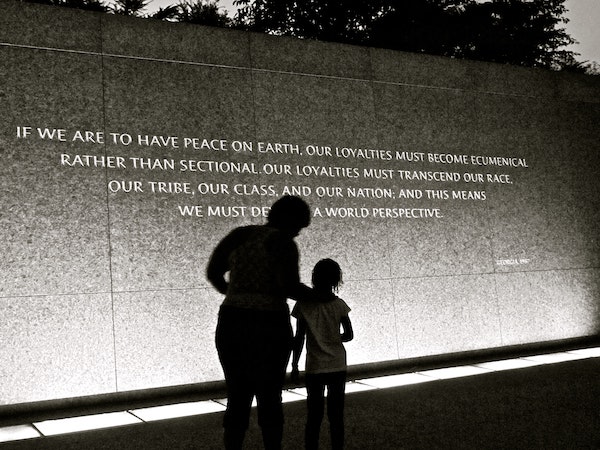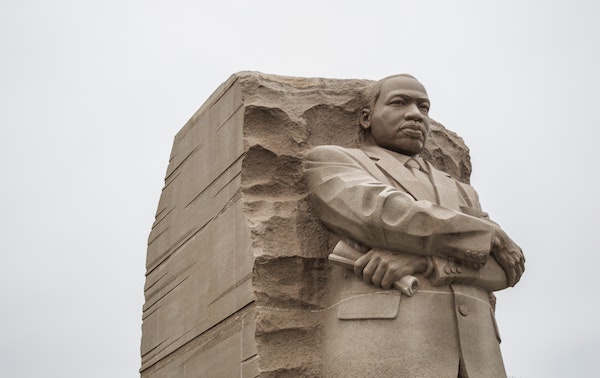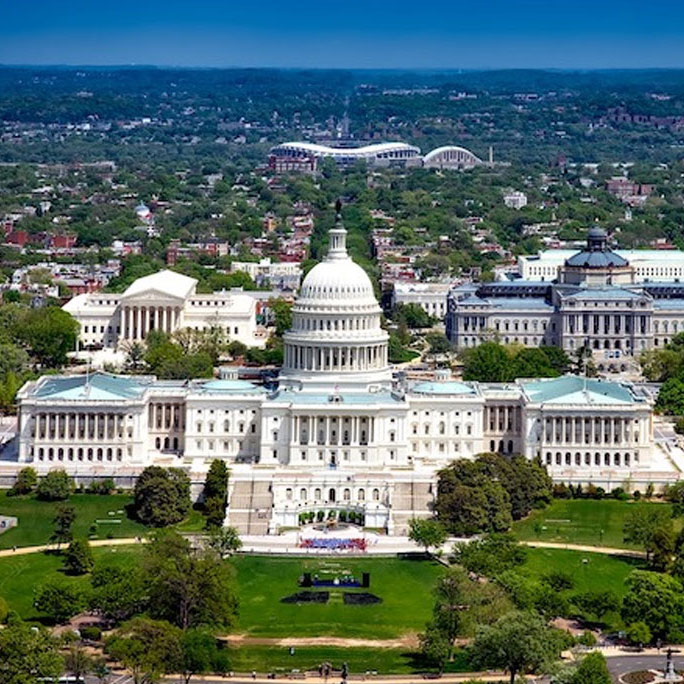Looking Back, Looking Forward

2020 ushered in unforeseen and unprecedented acts. Self-isolation co-existed with solidarity. We hugged without holding. And with reimagined compassion, we reshaped our collective commitment to show care and concern. For many within the nonprofit sector, we rightfully centered the importance of racial equity. We worked diligently to pitch and position the importance of financial resources in meeting the unmet needs of America’s most marginalized and disenfranchised. We knew with adequate financial and human resources, we could bring out the best from the worst.
At the onset of the pandemic during the week of March 23, 2020, researchers surveyed 10,368 adults in the United States and learned, “Fear and worry are not distributed equally across the country; rather they are concentrated in places where the largest number of confirmed COVID-19 cases is found.”
Fear and worry were not the only unequal distributions. “The pandemic hit different industries and population groups differently,” reports the Brookings Blueprints for American Renewal & Prosperity project. “Sectors that require in-person interactions or travel have been hit particularly hard, including service industries in general, and education, childcare, health care, social services, restaurants, and airlines in particular. As a result, various groups of workers have been affected differently, with larger increases in unemployment rates for workers who are less educated, young, female, and Black, Hispanic, Native American, and Asian American.”
While scientists rushed to create a vaccine, many of us scurried to creatively resource the physical, social, and emotional needs of our country’s most vulnerable children, young people, and adults. Fear and worry surrounded charitable leaders irrespective of proximity to confirmed COVID-19 cases.
As COVID-19 cases increased, we bore witness to horrific atrocities. We wept at the senseless loss of Black lives and mourned the murders of Ahmaud Arbery, Breonna Taylor, and George Floyd. COVID-19 and racism weren’t the only sources of our fears and worry. We questioned the short- and long-term impact of delayed, denied, or decreased financial investments.
“Unlike for-profit businesses, the clients of nonprofits are not usually the ones who pay for services; that payment comes through fundraising. So if demand rises significantly, nonprofits may struggle to meet the needs of their clients and communities, leaving people without access to critical services,” cites the Nonprofit Finance Fund.
As we neared the end of 2020, it was evident the worst did not belittle our best. Our best was bolstered by big expressions of generosity, and consequently, not-for-profit executives entered year-end fundraising on GivingTuesday with heightened hopefulness. “An estimated 34.8 million people participated in GivingTuesday 2020, a 29% increase over 2019,” states GivingTuesday Data Commons, “yielding $2.47 billion in the United States alone, representing a 25% increase compared to GivingTuesday 2019.”
While the seen and unforeseen adversities of COVID-19 and systemic racism are not resolved, the unmatched generosity of individuals are legitimate reasons to look to 2021 with renewed hopefulness.

On January 18, 2021, we will collectively honor the peaceful leadership and profound wisdom of Dr. Martin Luther King Jr. We will join millions around the world to celebrate his birth and extend his legacy of nonviolent social activism by showing care and concern to under-represented people from under-resourced communities.
Dr. King once declared, “Life’s most persistent and urgent question is, ‘What are you doing for others?’”
The Nonprofit Alliance Foundation is working to be, do, and give our best. We invite you to journey with us in 2021 to design educational resources to combat systemic racism, to foster new accountability measurements for White dominant work cultures, and to establish an internship and support program to attract racially and culturally diverse talent to the not-for-profit industry.
As we look ahead with overt optimism and genuine appreciation for our financial and human resources, we also extend genuine gratitude to you. In 2020, you refused to enable isolation to morph into inconsiderate behavior. You sensed the worthiness of strangers. You held people close while maintaining a safe and acceptable distance. You made the wise decision to care and show concern. Thank you for giving and being your best in 2020—we look forward to journeying with you to a more equitable 2021!



